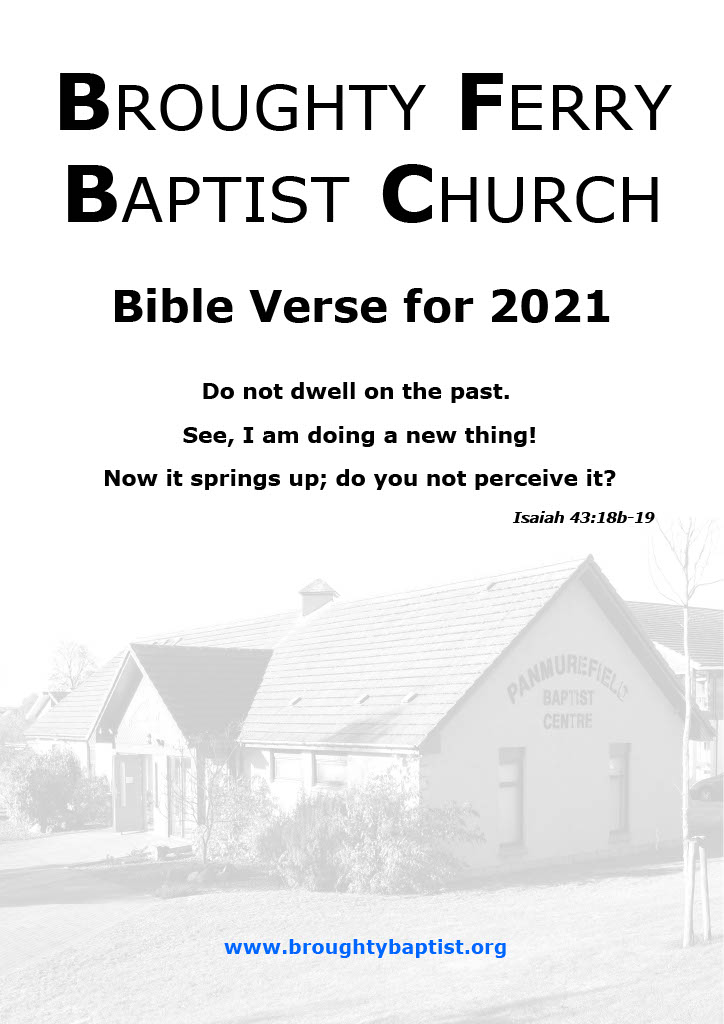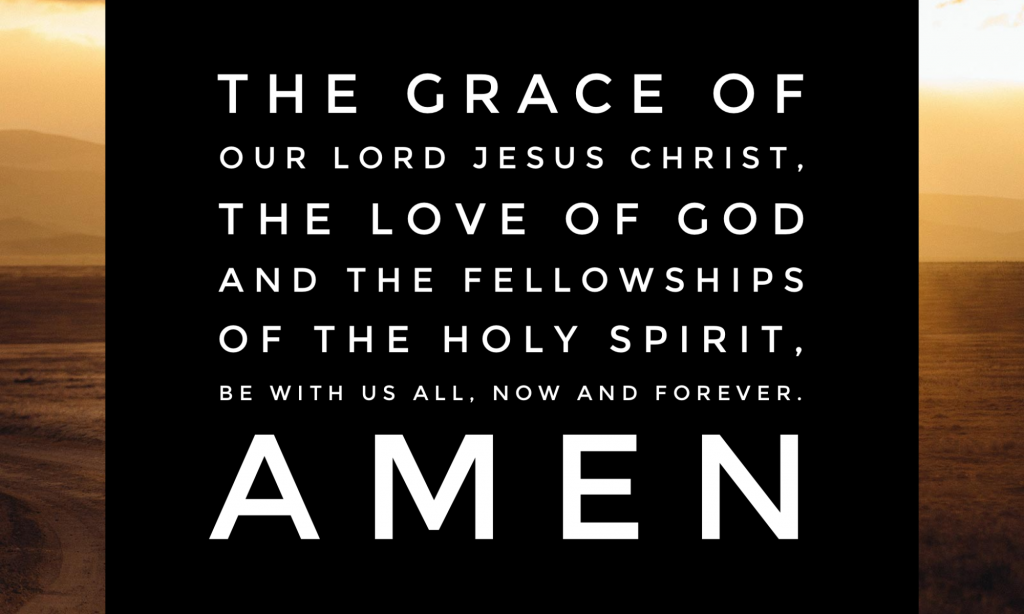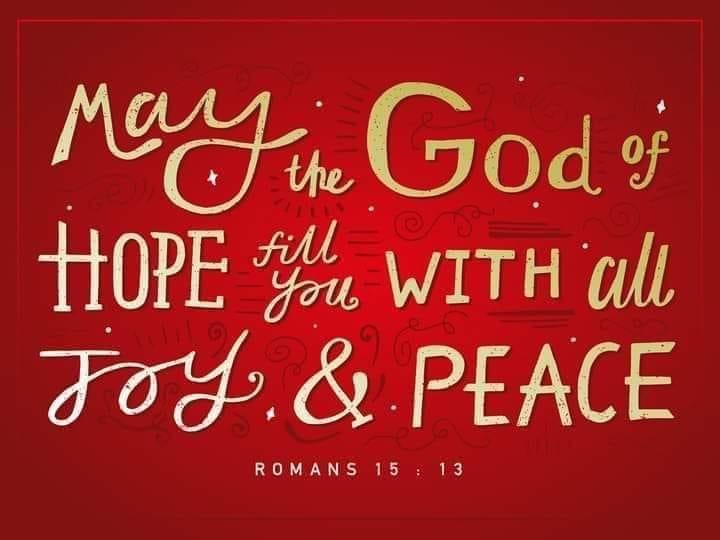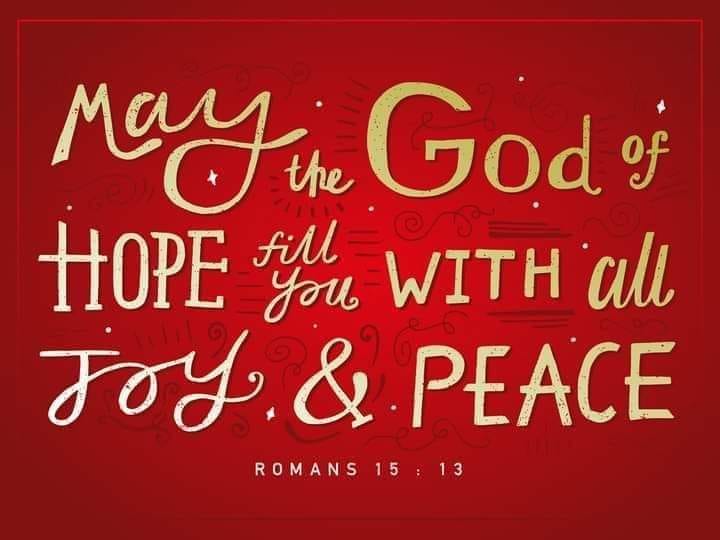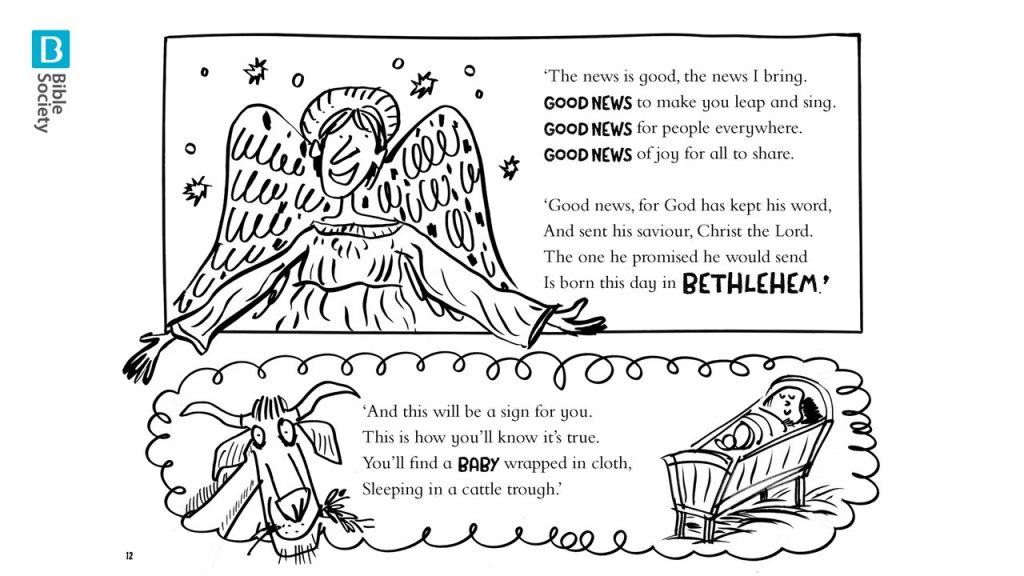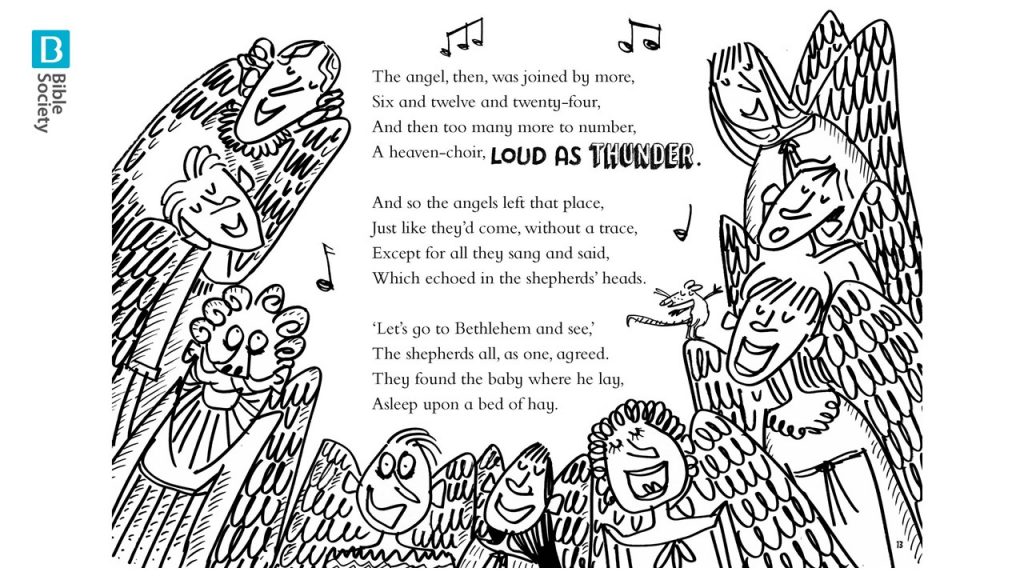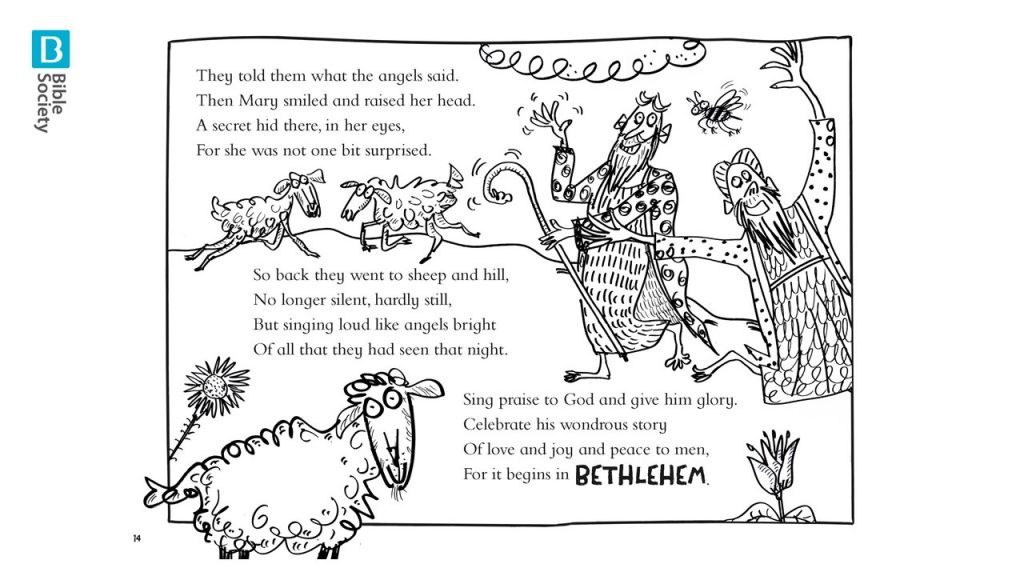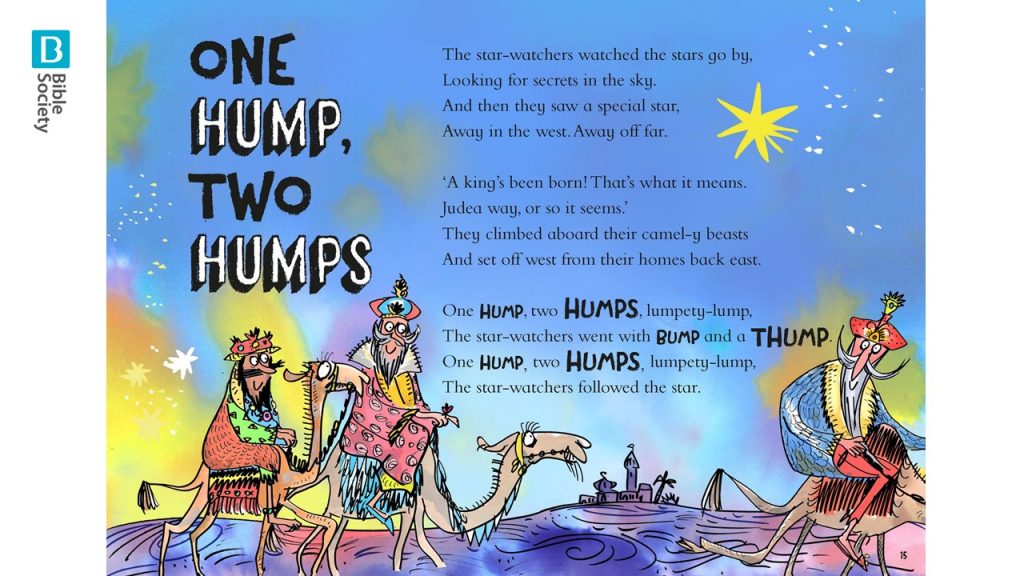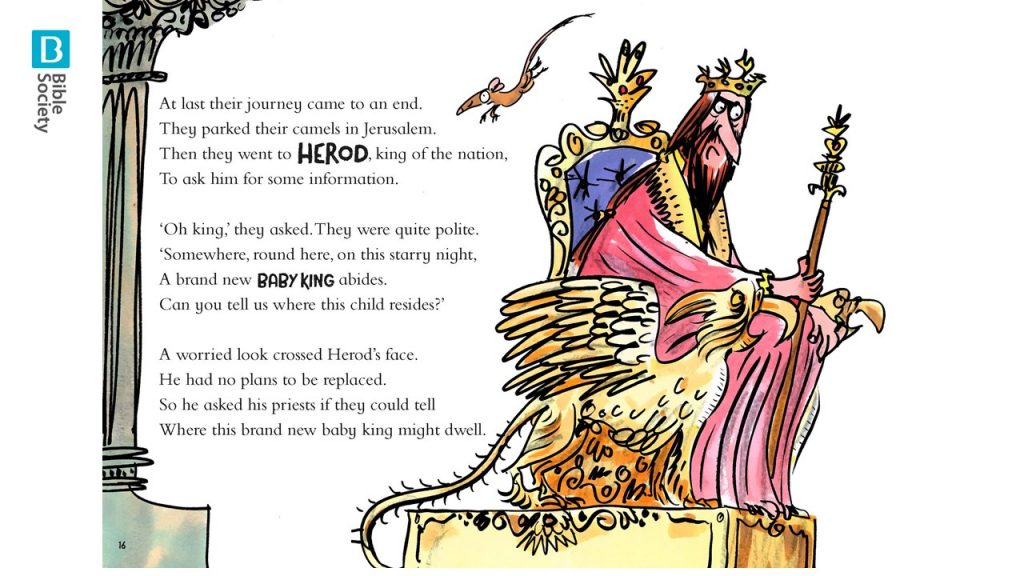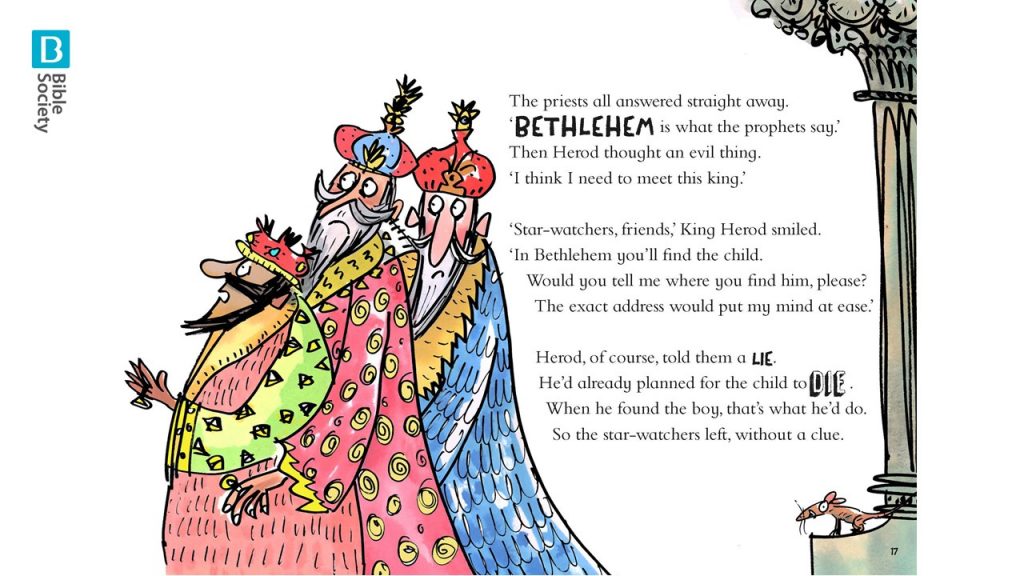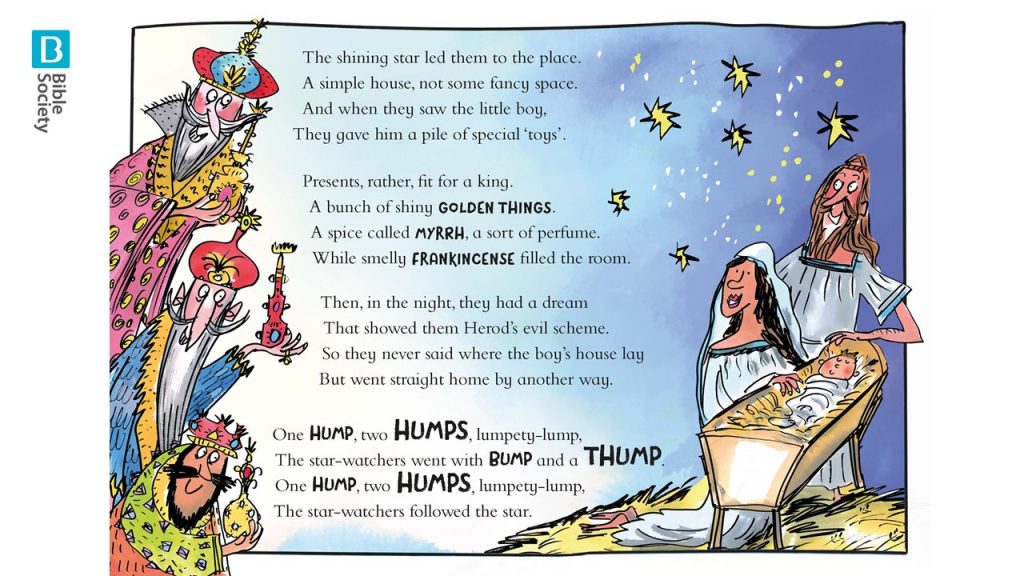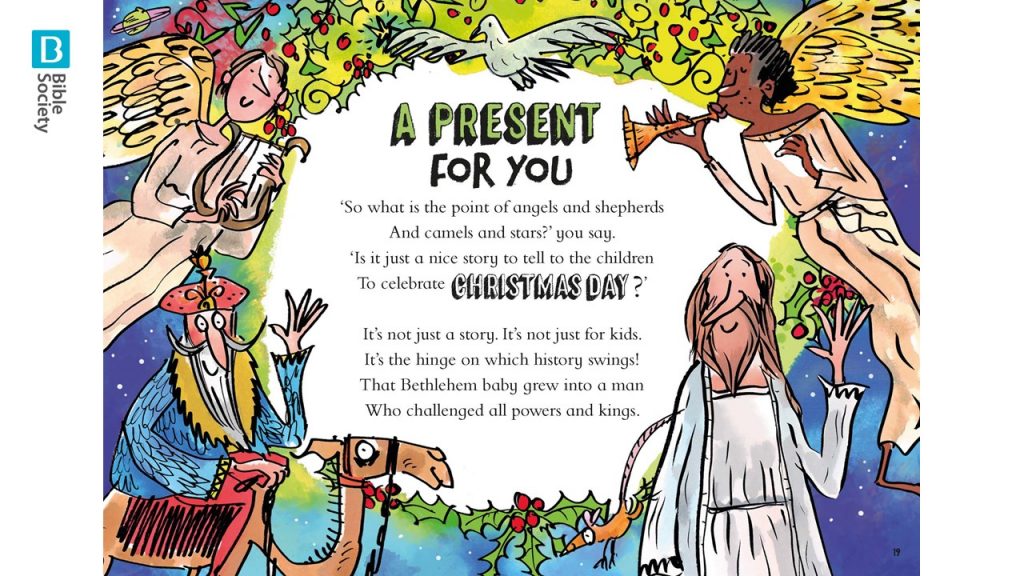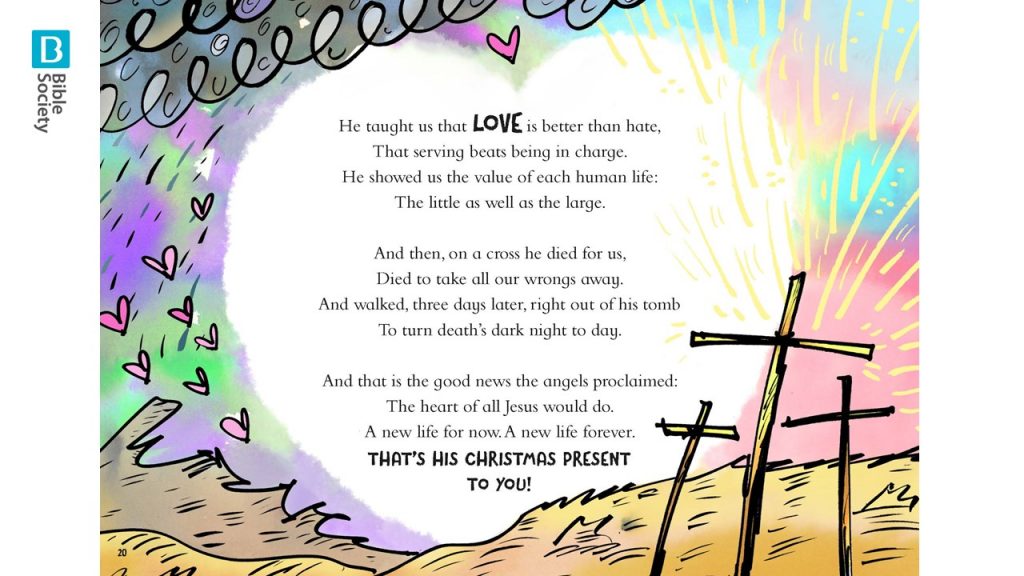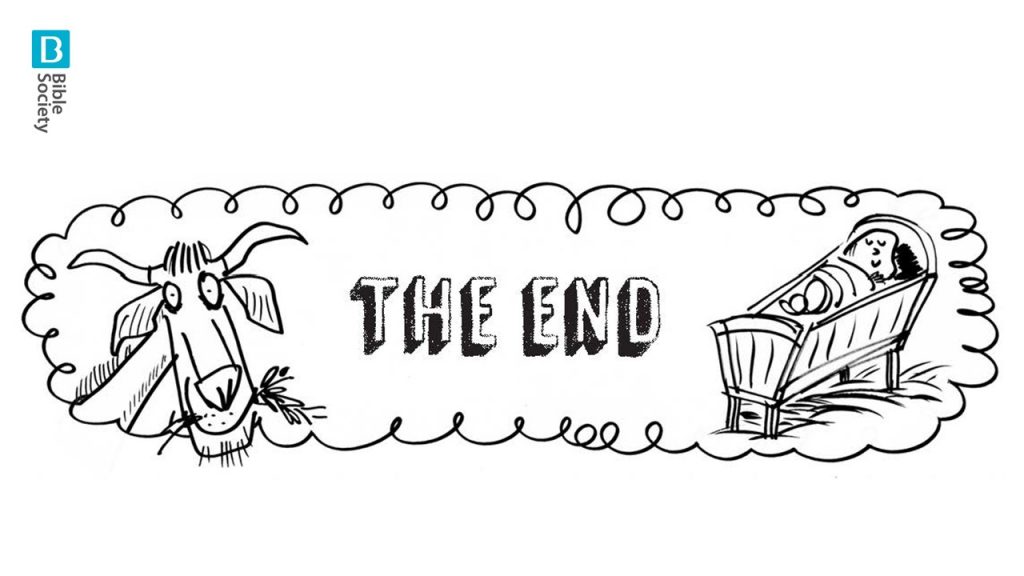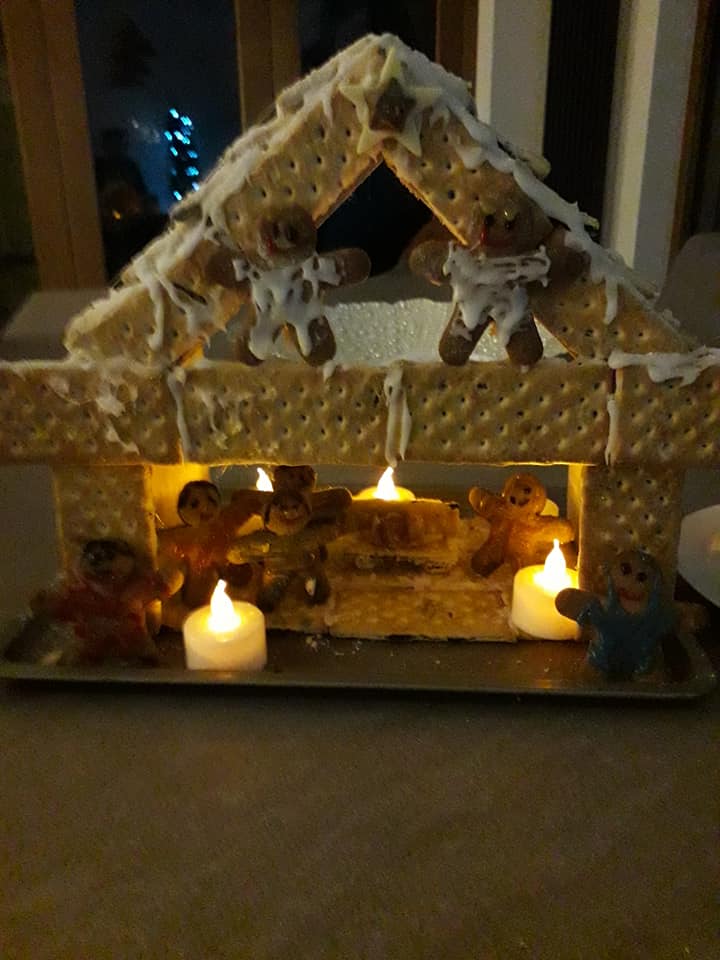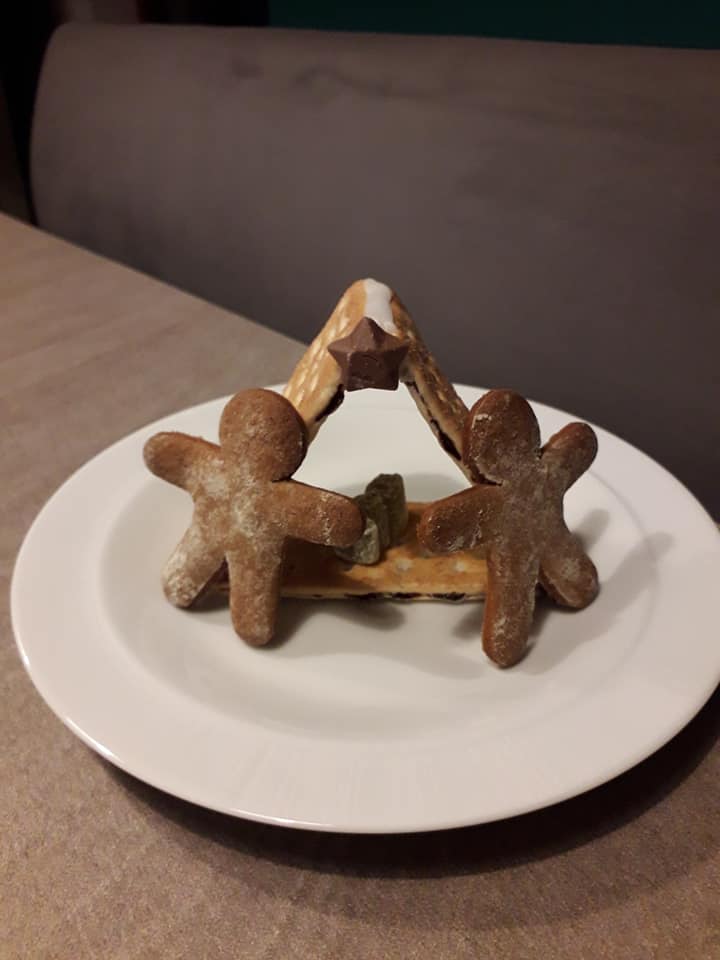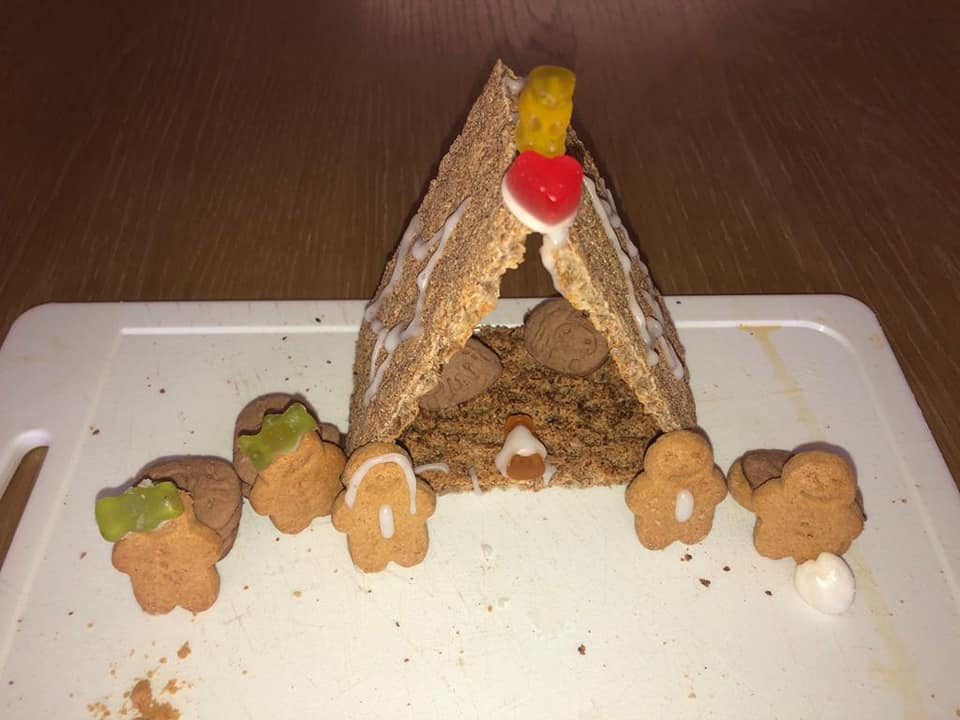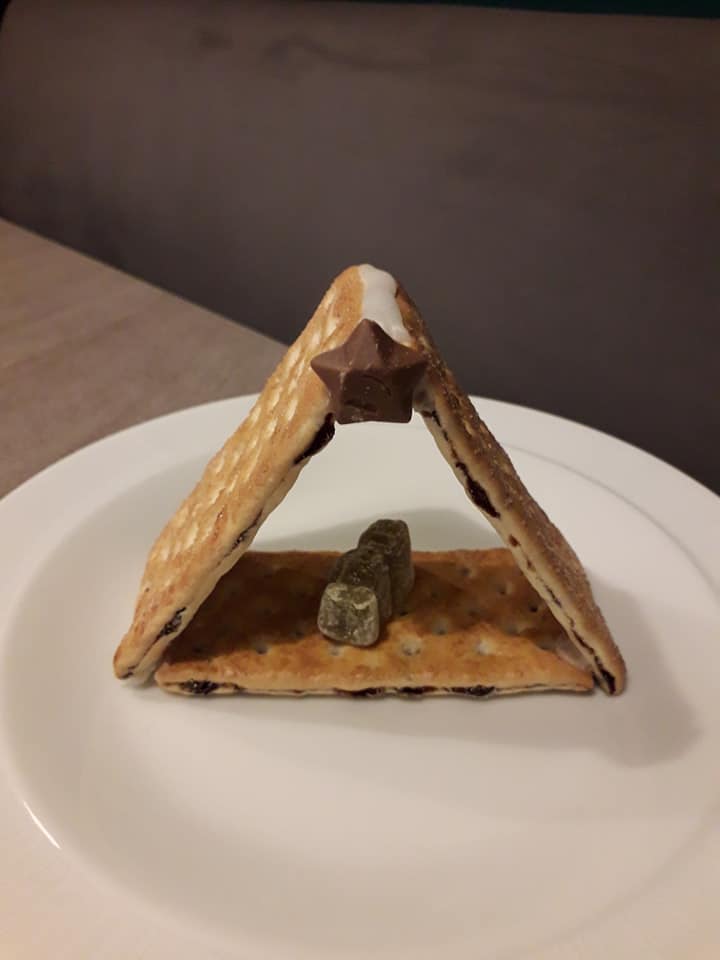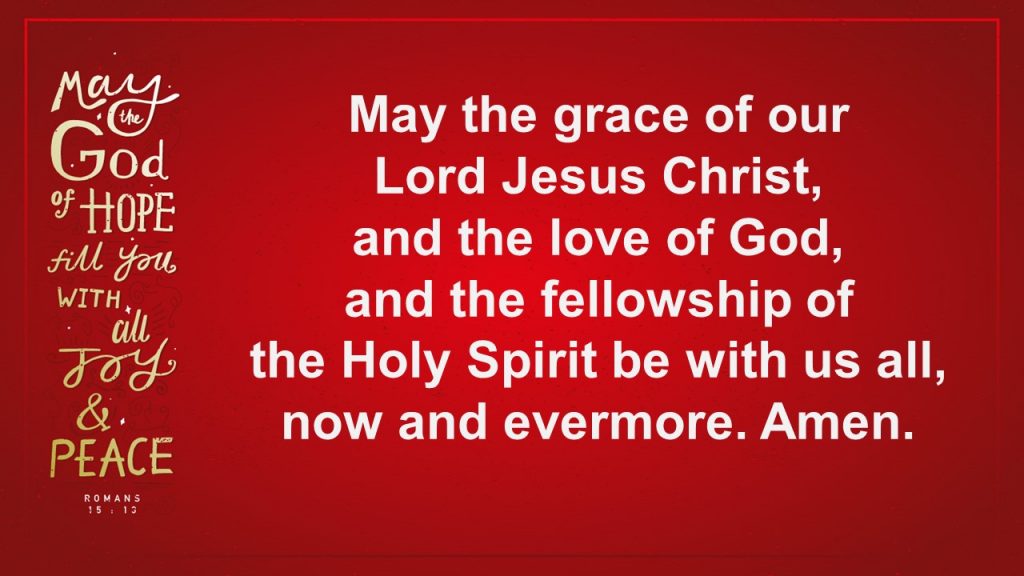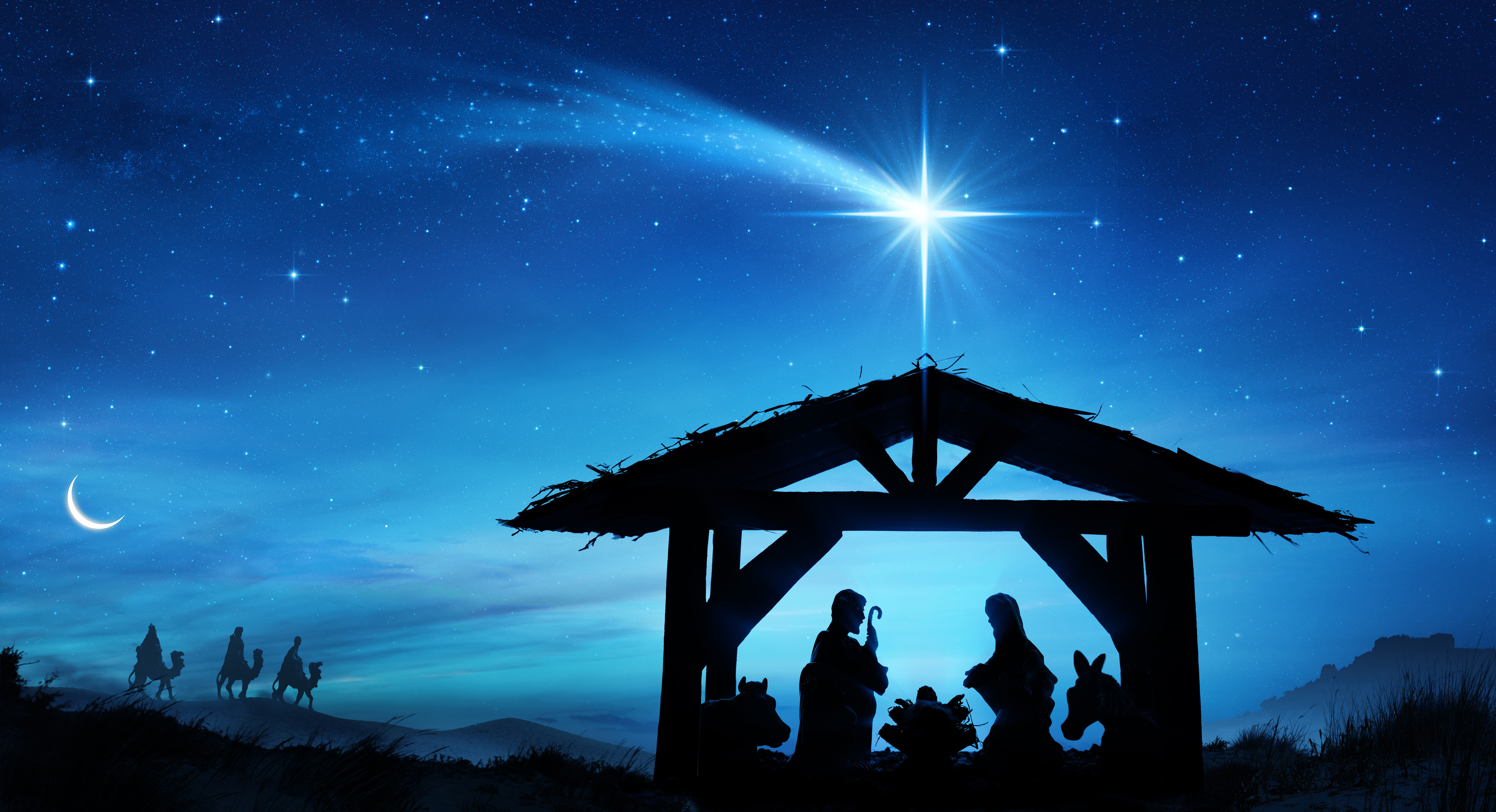JAM Kids’ focus:
Here is the video for Sunday 10 January 21 Virtual Sunday School: ‘John the Baptist and the locust eating challenge’
JAM young adults Ignite Live have a separate programme at 11:30am. Please contact Gary Torbet on garytorbet@btinternet.com for more details of today’s programme.
Baptist Union of Scotland National Prayer Livestream
The monthly prayer livestream takes place next on Sunday 7 February, 2021 7.00–7.30pm.
Call to worship
I will exalt you, my God the King;
I will praise Your name for ever and ever.
2 Every day I will praise You
and extol Your name for ever and ever.3 Great is the Lord and most worthy of praise;
Psalm 145:1-7
his greatness no one can fathom.
4 One generation commends Your works to another;
they tell of Your mighty acts.
5 They speak of the glorious splendour of Your majesty –
and I will meditate on Your wonderful works.
6 They tell of the power of Your awesome works –
and I will proclaim Your great deeds.
7 They celebrate Your abundant goodness
and joyfully sing of Your righteousness.
Our opening song of praise and worship is ‘Tell out my soul’
Opening prayer
Heavenly Father,
Many of us have struggled to adjust to the events of the past week. We had expected some tighter restrictions as the virus pandemic infection rates had increased, but as the reality sinks in of tougher times for the foreseeable future, it has been an emotionally difficult week.
At the start of this new week it is a relief and a privilege to come into Your holy presence as Your children. Thank You for the honour of calling You our Father. Thank You that it is not earthly rulers who are in ultimate charge of this world. We are so grateful that we can come to You honestly and openly to honour and to glorify Your name as we sing and listen to songs of praise and worship; as we read Your Word and reflect upon it.
We come confessing our sins and asking for the forgiveness of them and the fresh empowering of Your Holy Spirit this week. We would not forget to express our thankfulness for all our blessings of family and friends; of food and the other necessities of life and so much more, we bring our prayers in Jesus’ name Amen.
Let us say together the words Jesus taught His disciples when He said:
‘Our Father in heaven,
hallowed be Your name.
Your kingdom come,
Your will be done, on earth as it is in heaven.
Give us this day our daily bread,
and forgive us our debts, as we also have forgiven our debtors.
And lead us not into temptation, but deliver us from evil.'”
For Yours is the kingdom, the power and the glory, for ever Amen.
We continue in worship as we sing: ‘The splendour of the King’
All- Age Talk: ‘Being strong or being weak?’
How do we decide if someone is strong?
Is it how thick a branch someone can break with their bare hands?

Is it the ability to open a vacuum sealed jar in the kitchen without one of these tools?

Is it the ability to pick up your son or daughter and hold them safely in the air with only one arm?
How do you decide if someone is strong?
Is it the ability to keep going when life is very hard and things keep going wrong?
Is it being able to be happy with someone else when they share their good news – at a time when we are struggling to keep going?
Is it being able to keep encouraging other people at a time when we are feeling discouraged or even sad inside us?
All of us may have suggestions about something really good someone did for others when they could easily not have done it, because it took their time or their money or just the effort to help someone else.
However, we don’t need to pretend we are strong or fine or okay when we are not. Life is very difficult at the moment for many boys and girls and also for many adults.
There are many people who are working who are so exhausted because their work is harder physically or because of longer hours of concentrating their minds on work on a computer. Other people have health problems that may be giving them daily a lot of discomfort or pain. Maybe you are finding it hard keeping up with your school work with all the changes that have happened in the last year?
Other people are feeling under great pressure for so many reasons, health issues for themselves or others, someone special may have died, or they may struggle to pay their bills or pay for enough food to eat.
What is really important?
We must not be too hard on ourselves or other people when we or they are struggling at hard times like this. We must try to be more patient and kind and understand why someone else might not be okay.
We have not failed when we are not okay. We are human beings not robots. The apostle Paul took a long time to learn this lesson. He wanted always to be strong and okay, but he had to learn to accept his times of weakness and struggles and when he was not okay at all. It was in such times he had to rely even more on God. In a letter Paul wrote to a church in the city of Corinth in Greece these words that God has given to him:
But He said to me, ‘My grace is sufficient for you, for My power is made perfect in weakness.’ Therefore I [Paul] will boast all the more gladly about my weaknesses, so that Christ’s power may rest on me. 10 That is why, for Christ’s sake, I delight in weaknesses, in insults, in hardships, in persecutions, in difficulties. For when I am weak, then I am strong. (II Corinthians 12:9-10)
I hope each one of us will be able to be honest with ourselves about how we are getting on and be able to rely more on God, one day at a time, to get through the tough times we are going through at the moment.
Prayers for others

Lord Jesus,
In I Timothy 2:2 we are encouraged to pray for kings and all those in authority, that we may live peaceful and quiet lives in all godliness and holiness.
We have to confess that though we find it easy to comment on politicians and the choices they make, we are not as consistently willing to pray for them as they exercise the responsibility of governance in our country. We are conscious of the heavy pressures upon them at particularly difficult times like this and ask that You would grant them the necessary wisdom to lead and govern with choices that are beneficial for all, but particularly ensuring that the poorest and most vulnerable people are cared for in our midst.
It is appropriate to remember other countries that have serious problems with governance at the present time. We pray for our friends in America and ask that You would guide the law enforcement officials to act in a way that ensures a peaceful transition of power this month.
We plead for the people of Hong Kong whose political leaders of the opposition parties have been arrested for engaging in democratic politics. Lord have mercy upon them. We pray that pressure may be brought to bear on the Chinese president to honour the political settlement for Hong Kong and also ease the suffering imposed of the Uigher Muslims and on our Christian brothers and sisters in Mainland China.
We also continue to remember that in August 2020 there was a presidential election in Belarus. We are aware that the current President has closely protected his power through political oppression and control of media for 26 years. That election was widely agreed to have been rigged. Massive peaceful protests followed the election, but were met with police violence, abuse and torture. Over 7000 people were arrested in 3 days alone. The peaceful protests have continued for over two months, as have the political arrests and abuses. We pray that the hearts of the leadership and police would be softened and the violence stop, that God would bring peace and justice to Belarus.
In our own land we ask for the necessary strength for so many people to carry out their duties in health, social care, education and so many other spheres of work. Help us to be kind and encouraging to one another at this time looking out where possible for others around us. We are very aware that so many people are struggling with their emotional and mental health and pray that those individuals needing assistance may get the necessary help they need at this time.
We pray for the following chaplain and churches:
Marylee Anderson (Chaplain, Aberdeen University) – We pray for Marylee as she seeks to support both students and staff in her chaplaincy role. We pray for strength, wisdom and good opportunities for her to help people in their time of need.
Airdrie BC – We pray for their search group, as they are in the process of asking God to lead them to a new Pastor. Their Sunday morning service had started with half the fellowship attending on alternate Sundays. We pray that they all stay safe and that their live stream works well. We praise God for their Zoom Bible study on a Sunday evening and also for their Zoom prayer time on Wednesdays. Both of these meetings have many participants – much more than anticipated. We praise God for all the little kindnesses shown to the older people in their fellowship and they thank Him for the renewed interest by many friends.
Alexandria BC – We give thanks for the church fellowship in Alexandria. We pray for this small fellowship as they faithfully meet together week by week.
Alloa BC – They give thanks for the generous financial giving for the support of the local Church and BMS. They are encouraged by the number joining through Zoom for the mid-week prayer meeting. They are grateful that the dry rot problems in their church premises have been treated and for the time to redecorate. They pray for a fresh outpouring of God’s Spirit upon their small church – that they would seek to ‘shine for His Glory’.
Alness BC – They praise God for a real sense of God doing something new among them! We pray in particular for their ongoing building revitalisation work as they seek to be a hub within their community. They give thanks to God for the faithfulness of God’s people serving the local community in many different ways living and loving like Jesus.
We come to pray for the needs in our own congregation:
We are grateful for the improvements for Betty Watson and the good news that she is now home. We thank you that she has regained sufficient mobility to return to her own home and pray that she will continue to make further progress in regaining her health and strength. We particularly remember Ali and Gary T after the death of Ali’s dad Frank. We pray for Your comfort for Ali’s mum and each member of the family as seek to plan funeral arrangements. We also remember Bill D who was taken into Ninewells Hospital and pray that You will heal Him and enable Him to be restored to better health so that he will soon be able to go home. We continue to pray for Nicola L’s dad, Lawrie, as he recovers from major surgery and continue to remember others with ongoing health problems. We also pray for Isdale’s dad who has been experiencing problems swallowing food that he might get the right medical treatment. We give thanks that Shona H’ niece, Lynne, has responded well to her cancer treatment. We pray for her complete recovery.
We continue to pray for those with ongoing health conditions and bring them before You now…
We now pray silently for anyone else known to us who is in need of our prayers at this time…..
We pray also for our own needs…
We bring all these prayers before you in Jesus’ name,
Amen.
Bible reading
‘Yet you have not called on Me, Jacob, you have not wearied yourselves for Me, Israel.
23 You have not brought Me sheep for burnt offerings, nor honoured Me with your sacrifices.
I have not burdened you with grain offerings nor wearied you with demands for incense.24 You have not bought any fragrant calamus for Me, or lavished on Me the fat of your sacrifices. But you have burdened Me with your sins and wearied Me with your offences.
25 ‘I, even I, am He who blots out your transgressions, for My own sake, and remembers your sins no more. 26 Review the past for Me, let us argue the matter together; state the case for your innocence. 27 Your first father sinned; those I sent to teach you rebelled against Me.
28 So I disgraced the dignitaries of your temple; I consigned Jacob to destruction and Israel to scorn.‘But now listen, Jacob, My servant, Israel, whom I have chosen. 2 This is what the Lord says – He who made you, who formed you in the womb, and who will help you: do not be afraid, Jacob, My servant, Jeshurun, whom I have chosen.3 For I will pour water on the thirsty land, and streams on the dry ground; I will pour out My Spirit on your offspring, and My blessing on your descendants. 4
They will spring up like grass in a meadow, like poplar trees by flowing streams.5 Some will say, “I belong to the Lord”; others will call themselves by the name of Jacob; still others will write on their hand, “The Lord’s,” and will take the name Israel.
Isaiah 43:22-44:5
Before we come to listen to God’s Word let us sing: ‘Jesus You are changing me’
The Message
Pre-recorded version of the message
Isaiah 43:22-44:5 Our hope for the future
Introduction
Here in Scotland we have many monuments about the past history of this nation. The vast majority are statues of great people, or monuments erected in honour of heroes from the past. What they did was deemed a success. Yet not all of them point to past successes.
Another part of our heritage acknowledges gallant losers –people admired as courageous for their cause such as the Presbyterian Covenanters who were killed for rejecting the Stuart monarchs’ restrictions on practising their faith in this country in the seventeenth century. Their monuments are found in central or south-west Scotland.

However, a better known monument to a cause that in its day was unsuccessful is found on the road from Fort William to Malaig in north-west Scotland. I refer to the Glenfinnan Monument. It was erected in 1815 as a tribute to the men who had rallied to the standard of Prince Charles Edward Stuart on 19 August 1745 when he launched formally the final attempt to reclaim the British crown for the deposed Roman Catholic Stuart monarchy. Several thousand highlanders and their chiefs rallied to his cause and in the months to come would march down into England with a surprising degree of success.
However, the task was always beyond them and eventually on the battlefield of Culloden, outside Inverness, this army of Highland Scots was defeated by another composed primarily of lowland Scots and allied to the Protestant Hanoverian (German) monarchy, in whose honour the national anthem was composed!
On 16 April 1746 the final attempt to overthrow the representative democratic form of governance under a Protestant monarchy was defeated. The Glenfinnan Monument was not built immediately, that would not have been permitted by a Government nervous about revolutions, not least in the light of the French Revolution under Napoleon Bonaparte.
However, his revolution was destroyed at the Battle of Waterloo on 18 June 1815 by a combined British and German army thus securing the position of the British Government and its empire. Jacobite supporters could erect a monument then as their small numbers were no longer a threat to the Government. The Monument was a reminder for them of a past failure, of what might have been, but it gave no hope for the future. This fact is in complete contrast with the argument of Isaiah in this encouraging message to the Jewish people whose hopes had been dashed and whose country had been brought to ruins by the Babylonians. What had happened in the past was not the final word, because the God of Israel was and is sovereign over His people and His creation.
1. A Past to be addressed (Isaiah 43:22-25)
‘Yet you have not called on me, Jacob, you have not wearied yourselves for me, Israel.
23 You have not brought me sheep for burnt offerings, nor honoured me with your sacrifices.
I have not burdened you with grain offerings nor wearied you with demands for incense. 24 You have not bought any fragrant calamus for me, or lavished on me the fat of your sacrifices. But you have burdened me with your sins and wearied me with your offences. 25 ‘I, even I, am He who blots out your transgressions, for My own sake, and remembers your sins no more.
God has created each of us with different temperaments. There are some people who have absolutely no interest in anything that happened in the past. Yesterday to them is history that cannot be changed and as a result their focus is entirely on the present and especially what might happen in the future.
Now being forward looking is a positive thing and commendable as we cannot rest on our laurels when there is so much still to be accomplished for God and for other people and for ourselves! However, sometimes such people can have no comprehension that their past mistakes or actual sins have negatively affected other people and cannot simply be put out of sight and buried deep in our memories. The past has to be faced up to; we have to come to terms with what has previously taken place; good and bad, encouraging and discouraging, in order to live more effectively in the present and to prepare more confidently for the future that God has in store for us.
How can we do that most effectively? Look at the start of verse twenty-five with the emphatic statement from God. I, even I, am He… In their past were real issues that got between them and God; and there was a clear acknowledgement that the people of Judah had not done very well in seeking to remedy the situation. Either they had failed to offer the appropriate sacrifices prescribed in the Levitical law or they had kept the letter of the law, but were not serious about getting right with God in their hearts. God knows our hearts so we can never put on an act before Him. This was not a new issue for Isaiah. As early as Isaiah chapter one the prophet gives this strong message to Judah and Jerusalem.
‘The multitude of your sacrifices – what are they to me?’ says the Lord. ‘I have more than enough of burnt offerings, of rams and the fat of fattened animals; I have no pleasure in the blood of bulls and lambs and goats. 12 When you come to appear before me, who has asked this of you, this trampling of my courts? 13 Stop bringing meaningless offerings! Your incense is detestable to me. New Moons, Sabbaths and convocations – I cannot bear your worthless assemblies.
14 Your New Moon feasts and your appointed festivals I hate with all my being. They have become a burden to me; I am weary of bearing them. 15 When you spread out your hands in prayer, I hide my eyes from you; even when you offer many prayers, I am not listening. Your hands are full of blood!16 Wash and make yourselves clean. Take your evil deeds out of my sight; stop doing wrong.
17 Learn to do right; seek justice. Defend the oppressed. Take up the cause of the fatherless; plead the case of the widow. 18 ‘Come now, let us settle the matter,’ says the Lord. ‘Though your sins are like scarlet, they shall be as white as snow; though they are red as crimson, they shall be like wool. 19 If you are willing and obedient, you will eat the good things of the land; 20 but if you resist and rebel, you will be devoured by the sword. ’For the mouth of the Lord has spoken (Isaiah 1:11-20);
The past was a problem but never beyond resolution with God. What had been missing was God in His central place. The outward ritual practices had continued as normal but there was a problem with failing to honour Him. This wasn’t the only time the nation needed to be reminded about God in their midst, the great I AM. In Exodus 3 Moses, who had been required to live in the remote desert south of the borders of Egypt as a result of seeking to accomplish God’s work by inappropriate means, sees a bush burning but it is not consumed. In the course of the revelatory encounter Moses asks about the identity of the One who has invited him to meet with Him. Exodus 3:13-17 states:
Moses said to God, ‘Suppose I go to the Israelites and say to them, “The God of your fathers has sent me to you,” and they ask me, “What is his name?” Then what shall I tell them?’ 14 God said to Moses, ‘I am who I am. This is what you are to say to the Israelites: “I am has sent me to you.”’ 15 God also said to Moses, ‘Say to the Israelites, “The Lord, the God of your fathers – the God of Abraham, the God of Isaac and the God of Jacob – has sent me to you.” ‘This is My name for ever, the name you shall call Me from generation to generation. 16 ‘Go, assemble the elders of Israel and say to them, “The Lord, the God of your fathers – the God of Abraham, Isaac and Jacob – appeared to me and said: I have watched over you and have seen what has been done to you in Egypt. 17 And I have promised to bring you up out of your misery in Egypt into the land of the Canaanites, Hittites, Amorites, Perizzites, Hivites and Jebusites – a land flowing with milk and honey.”
In essence, the Israelites in Egypt, like their successors in Isaiah’s day are in need of a reminder of the One who is really in charge of their situation. Now in human terms the Israelites of Moses’ day were slaves at the beck and call of their Egyptian masters. The people of Judah of Isaiah’s day felt extremely vulnerable in the light of the proximity of the Assyrian and Babylonian empires, superpowers that greedily gobbled up kingdom after kingdom on their borders.
The gods of the other nations didn’t appear to make a difference when their followers were in crisis – would it be any different in Judah? It can get more complicated because there may have been genuine committed believers crying out to God for years for an end to slavery in Egypt with nothing visible to show for it or for a relief from the possibility of a brutal war in the later era which they had no chance of winning. Deep down some of them may very well have doubted either God’s ability or willingness to act on their behalf. In part this may have been because of their recognition of personal or national sin that had not been atoned for. Were they a nation beyond redemption? Are there hopeless cases? What does Isaiah 43:25 remind us?
‘I, even I, am He who blots out your transgressions, for My own sake, and remembers your sins no more.
You and I individually and collectively have sinned and made mistakes in the past, but praise God that is not the last word. What does this verse tell us? He who blots out your transgressions… and remembers your sins no more.
The past failures and mistakes that have been repented of and dealt with before the Lord are beyond His recall. The devil may try and accuse you and me of not being good enough to serve God or live for Him – remind him on such occasions what our heavenly Father has done with our past! Why has He done this? Is it to please us or is it an arbitrary decision? No! for My own sake… It is in order to bring glory to His name. He wants to work in us and through us both for our good and supremely for His glory.
Unlike the Glenfinnan Monument that forever reminds Jacobites of their failure in 1745 and 1746, God has erased our past failings and any obstacles to His working in us in the present and the future. Is there anyone here who needs to let go of past disappointments or failures or sins that are potentially hindering you from being the person God wants you to be? Take encouragement from these words from God through Isaiah. They are just as true today as they were 2,750 years ago.
2. A Present to be acknowledged (Isaiah 43:26-28)
(a)The Challenge from God (Isaiah 43:26) 26 Review the past for Me, let us argue the matter together; state the case for your innocence.
The next verses are ironic in tone. God through the prophet invites the people of Judah to respond and give detailed information if they think God has erred in His handling of their cause over the years. Presumably when Isaiah delivered this message orally that he paused for a few moments at this point, like a minister pausing in a wedding service after asking the congregation if they know of any reason why the couple standing at the front of the church may not be married legally and in the sight of God! It is likely that people had complained to Isaiah that God was not treating them fairly.

Maybe even with the confidence demonstrated by football fans as they enthusiastically communicate to a referee that he has been less than fair to their team! If a few people had spoken the words, presumably more had though these sentiments in their heads. Maybe you and I have thought hard thoughts about our lot in life at times? We all know deep down that life isn’t fair in many respects, but how we understand that may reflect on how we interpret God’s superintendence of the world He has created.
Here the people of Judah were put on the spot and asked –if you have a grievance against God to make it plain. If you believe you are completely innocent and without sin and not needing God’s grace then please let Him know! All of us have known times when in a minor or major way we nursed a grievance against someone, but when we tried to articulate it audibly even in private the strength of the matter somehow seemed less convincing – maybe it actually was not as significant as we had previously thought?
On occasions we only have part of the picture and can misjudge the motives of other people or misunderstand how God has chosen to respond to our prayers. God appreciates honesty in our prayers. In the book of Job He didn’t mind the patriarch raising his concerns in his prayers, but in turn asked Job to reflect on a series of questions that indicated that there was a bigger picture than even this godly man had grasped. Equally important God was less than impressed in that story by Job’s friends who had everything cut and dried and who had made his trials worse by their pastorally disastrous theology! God here is genuinely being gracious allowing His people to share their concerns prior to His confirmation of humanity’s fall into sin.
(b) The Confirmation from God (Isaiah 43:27-28) 27 Your first father sinned; those I sent to teach you rebelled against Me.28 So I disgraced the dignitaries of your temple; I consigned Jacob to destruction and Israel to scorn.
God’s response begins with the fall of humanity in the Garden of Eden where each of those present passed the buck and said: ‘It wasn’t my fault it was….’s fault!’ Adam bore the ultimate responsibility leading to the separation of our first human parents from the close fellowship they had previously enjoyed with God. Now they were excluded from the Garden of Eden and thrust into a new and much harder way of life. The one repeated refrain in the first human genealogy in Genesis 5 are the salutary words: …and then he died.
From the father of the nation Abraham to all the prophets, priests and kings, all without exception failed to live up to God’s standards. The story of the children of Israel throughout the Old Testament is a cycle of sin, repentance, good behaviour, before the pattern is repeated again and again, generation after generation. It is not as if there had been no warning of God’s judgement. Moses, in his final messages to the nation before his death passed on these words from God in Deuteronomy 28:58-63:
If you do not carefully follow all the words of this law, which are written in this book, and do not revere this glorious and awesome name – the Lord your God – 59 the Lord will send fearful plagues on you and your descendants, harsh and prolonged disasters, and severe and lingering illnesses.
60 He will bring on you all the diseases of Egypt that you dreaded, and they will cling to you. 61 The Lord will also bring on you every kind of sickness and disaster not recorded in this Book of the Law, until you are destroyed. 62 You who were as numerous as the stars in the sky will be left but few in number, because you did not obey the Lord your God. 63 Just as it pleased the Lord to make you prosper and increase in number, so it will please Him to ruin and destroy you. You will be uprooted from the land you are entering to possess.
Exile for a disobedient nation was inevitable. However it would not be the last word.
As Christians we can take the gospel story further than was revealed in its clarity in Isaiah’s day. The I AM whose message was relayed by the prophet Isaiah took human flesh and was born as a baby in Bethlehem. The purpose of that coming was explained so clearly by Paul in Galatians 4:4-5:
But when the set time had fully come, God sent His Son, born of a woman, born under the law, 5 to redeem those under the law, that we might receive adoption to sonship.
John the apostle, in the opening verses of his Gospel presents something of the wonder and significance of that event. John 1:14-17 states: The Word became flesh and made His dwelling among us. We have seen His glory, the glory of the one and only Son, who came from the Father, full of grace and truth.15 (John testified concerning Him. He cried out, saying, ‘This is the one I spoke about when I said, “He who comes after me has surpassed me because He was before me.”’) 16 Out of His fullness we have all received grace in place of grace already given. 17 For the law was given through Moses; grace and truth came through Jesus Christ.
On seven occasions in John’s Gospel the writer is directed to explain aspects of Jesus’ identity through the use of the I AM sayings, for example, I am the Light of the World (John 8:12); I am the resurrection and the life (John 11:25); in Jesus we have genuine hope for the future, because although the consequences of unrepentant sin are extremely serious, the blessing to the recipients of His grace are out of this world. Paul sets this out very clearly at the end of Romans 6.
But now that you have been set free from sin and have become slaves of God, the benefit you reap leads to holiness, and the result is eternal life. 23 For the wages of sin is death, but the gift of God is eternal life in Christ Jesus our Lord (Romans 6:22-23).
Have you received this grace from God? Have you known a time when your sins have been forgiven? Have you had your past shortcomings erased by God and released to be the person He created you to be in Christ? On our own there are many situations in life which appear hopeless. When the Lord Jesus Christ is in the picture our predicament is completely transformed. We have to be honest that on many occasions the way God chooses to work in people’s lives can be very different to what we had either hoped for or expected, but the One who has invested so much in us through Jesus must only want the best for us –even if we cannot see it at the time.
3. A Future to be anticipated (Isaiah 44:1-5)
(a) The Assurance (Isaiah 44:1-2) ‘But now listen, Jacob, My servant, Israel, whom I have chosen. 2 This is what the Lord says – He who made you, who formed you in the womb, and who will help you: do not be afraid, Jacob, My servant, Jeshurun, whom I have chosen.
The opening two words here signal a change of direction: But now… we have had the bad news, here is God’s good news! He speaks in covenant language of the people whom I have chosen in verse 1; and in the language reflecting the creation account in Genesis 2 in verse 2 here. These words of assurance in this section are similar in intent to Jeremiah’s familiar encouraging words to the exiles in Babylon in Jeremiah 29:10-13:
This is what the Lord says: ‘When seventy years are completed for Babylon, I will come to you and fulfil My good promise to bring you back to this place. 11 For I know the plans I have for you,’ declares the Lord, ‘plans to prosper you and not to harm you, plans to give you hope and a future. 12 Then you will call on Me and come and pray to Me, and I will listen to you. 13 You will seek Me and find Me when you seek Me with all your heart.
The circumstances in which God’s people find themselves at any particular time may be less than encouraging, but God hasn’t changed and His promises are still as reliable as ever. It is supremely important to grasp that God chose us in Christ and loves us through the atoning sacrifice which He offered once for all time so that we might have fellowship with God the Father both now and into eternity. God wanted to stress a number of things to these fearful Israelites in Jerusalem. Here in Isaiah 44:1-2 it is an assurance of His amazing love to us, from eternity to eternity.
As Jesus explained it to His followers at the Last Supper there is a purpose in God’s plan In John 15:16 Jesus said: You did not choose Me, but I chose you and appointed you so that you might go and bear fruit – fruit that will last – Jesus has His hand on your life and mine as well. His message is exceptionally clear. You are in My plans for the future! You may not this side of eternity understand all the way I work, but I want you to be assured that the work I have begun I will bring to completion on the day I return in glory. Do you need to hear Jesus’ words of assurance today?
There is a play on words here in the original Hebrew in the contrast between the two names used in verse 2: Jacob, My servant, Jeshurun, whom I have chosen… Jacob as I am sure most of us know means ‘deceiver’. Jeshurun means ‘upright’. God sees both from where we have come from our sins and by His grace, together with where we are going with His help. He sees the potential in every one of His children and is excited at the thought of it being fulfilled in all our lives.
God is not playing a game here. He knows of our sins and failures, but will do everything in His power to ensure that all of His children complete their earthly journey in His grace, prepared for their eternal future. Do you find it exciting that God has invested so much in you and me? We all have a past. We are all living in the present, but most of all here God wants to assure His children of the blessings He has in store for us in the future.
(b) The Promise (Isaiah 44:3)3 For I will pour water on the thirsty land, and streams on the dry ground; I will pour out My Spirit on your offspring, and My blessing on your descendants. Isaiah has already drawn attention to God’s plans to bless Israel in the future in Isaiah 35:1-2:
The desert and the parched land will be glad; the wilderness will rejoice and blossom. Like the crocus, 2 it will burst into bloom; it will rejoice greatly and shout for joy. The glory of Lebanon will be given to it, the splendour of Carmel and Sharon; they will see the glory of the Lord, the splendour of our God.
This encouraging prophetic passage concludes with these words: But only the redeemed will walk there, 10 and those the Lord has rescued will return. They will enter Zion with singing; everlasting joy will crown their heads. Gladness and joy will overtake them, and sorrow and sighing will flee away (Isaiah 35:9b-10).
The people of Judah in their despair could only see ‘the desert’, whereas, God could see a future flourishing landscape in the Holy Land.

In our culture we speak of two types of people; those who see ‘a glass half-full’ and those who see it ‘half-empty’. Here the contrast is between a glass that is truly empty, with one overflowing with blessings from God. However, the blessing is a future one which needed to be claimed by faith. It required a people thirsty for God who would continue to seek His blessing and favour until they saw it come down on their land.
Are we a people who will keep on praying for people to come to faith, come back to the Lord or whatever the need might be until it happens? Will we make the time for both personal and collective prayer to that end? Over the centuries, sadly, church prayer meetings have been the poorest attended gatherings of Christians.
Have we missed out on some blessings because we have not sought them seriously enough? What are your expectations over these next few years, or the next decade for Him working in our midst? Too often our timescales are shorter than those of God. Many blessings are generational in which parents or grandparents cry out to God for blessings that a younger generation will experience.
What is the promise here? I will pour out My Spirit on your offspring, and My blessing on your descendants… There is undoubtedly a fulfilment of the promise on the Day of Pentecost (Acts 2) at the launch of the Christian Church. The prophet Joel proclaimed at some point prior to the exile to Babylon this message from God:
And afterwards, I will pour out my Spirit on all people. Your sons and daughters will prophesy, your old men will dream dreams, your young men will see visions. 29 Even on my servants, both men and women, I will pour out my Spirit in those days. 30 I will show wonders in the heavens and on the earth, blood and fire and billows of smoke.31 The sun will be turned to darkness and the moon to blood before the coming of the great and dreadful day of the Lord. 32 And everyone who calls on the name of the Lord will be saved; for on Mount Zion and in Jerusalem there will be deliverance, as the Lord has said, even among the survivors whom the Lord calls (Joel 2:28-32).
The secret here, though, is not simply greater effort or greater prayer from God’s people but a plea for a special outpouring of the Holy Spirit to cascade God’s blessing on His people in an extraordinary manner. To which we cry out: ‘Lord please do it again’ in this our generation!
(c) The Blessing (Isaiah 44:4-5)4 They will spring up like grass in a meadow, like poplar trees by flowing streams.5 Some will say, “I belong to the Lord”; others will call themselves by the name of Jacob; still others will write on their hand, “The Lord’s,”and will take the name Israel.
To whom did the Lord send these words of encouragement? To a people in despair who were on the verge of giving up hope of God working in their midst in the future. God’s exhortation to them and to us was not to be afraid; not to allow past failures, sins or disappointments to rob us of our confidence in God’s future blessings.
However, this passage also hints that such blessings will be granted to those who are earnestly seeking them from God and have an expectation, despite the lack of visible proof that God will work in our midst. Is that you and me? For some people like old Jacob it takes desperate circumstances, in his case in the battle with the heavenly being at Peniel before he would say to God: I will not let you go unless you bless me (Genesis 32:26b). Oh, may that be the spirit with which we seek God’s face in prayer and that same spirit by which we serve Him day by day, for Jesus’ sake, Amen.
Our song before we come to communion is: City Alight’s song ‘Ancient of Days’
The Lord’s Supper
Jesus invites all Christian who have committed their lives to follow Him to participate in this act of worship. The apostle Paul wrote these words of Scripture in I Corinthians 11:23-26 to guide our observance of Communion.
For I received from the Lord what I also passed on to you: the Lord Jesus, on the night He was betrayed, took bread, 24 and when He had given thanks, He broke it and said, ‘This is My body, which is for you; do this in remembrance of Me.’ 25 In the same way, after supper He took the cup, saying, ‘This cup is the new covenant in My blood; do this, whenever you drink it, in remembrance of Me.’ 26 For whenever you eat this bread and drink this cup, you proclaim the Lord’s death until He comes.
Prayer: Choose your own words of prayer to give thanks for the bread and wine that represent the costly gift of His body and blood for us.
Take the bread: Jesus said: ‘This is My body, which is for you; do this in remembrance of Me.
Take the wine: Jesus said: This cup is the new covenant in My blood; do this, whenever you drink it, in remembrance of Me.’
Our closing song is: ‘Rejoice, rejoice Christ is in you’
Closing Prayer:
Lord You are the giver of hope in our lives. It is You who encourages, strengthens and supports us in our times of need. As we enter this new week we do so with confidence in You that You will supply all the resources we need to persevere in tough times, the wisdom we need when choices have to be made and the courage to continue when it would be easier to draw back. Help us in all we do to live lives pleasing to You, in Jesus’ name we pray, Amen.
Benediction: The Grace


